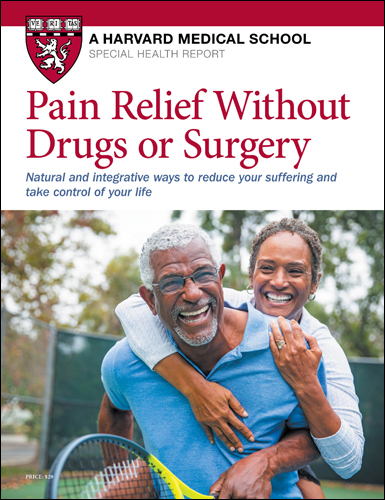Americans' use of prescription sleep medications drops dramatically
Research we're watching
- Reviewed by Toni Golen, MD, Editor in Chief, Harvard Women's Health Watch; Editorial Advisory Board Member, Harvard Health Publishing; Contributor

After rising steeply for several decades, Americans' use of prescription sleep aids is dropping sharply, a new study suggests.
The study, published online July 12, 2022, by the Journal of Clinical Sleep Medicine, analyzed data from 29,400 adults gathered from 2013 to 2018 in the National Health and Nutrition Examination Survey. At three separate visits over this period, participants presented prescription bottles for all medications they'd used in the prior month. Researchers noted all medications used for sleep disturbance (whether or not they were FDA-approved for that use) and examined changes in their use over time.
Over the course of the study, the likelihood of participants using sleep medications dropped 31%. Notably, among participants 80 and older — who are most vulnerable to falls when using sleep medications — researchers saw an 86% reduction in FDA-approved sleep medication use.
While the researchers said the COVID-19 pandemic may have since influenced the trend of sleep aid use, they were encouraged by the study's findings. Medical and public health groups have strongly discouraged the use of sleep medications because of side effects such as dizziness and lightheadedness, which can lead to falls.
Image: © Prostock-Studio/Getty Images
About the Author

Maureen Salamon, Executive Editor, Harvard Women's Health Watch
About the Reviewer

Toni Golen, MD, Editor in Chief, Harvard Women's Health Watch; Editorial Advisory Board Member, Harvard Health Publishing; Contributor
Disclaimer:
As a service to our readers, Harvard Health Publishing provides access to our library of archived content. Please note the date of last review or update on all articles.
No content on this site, regardless of date, should ever be used as a substitute for direct medical advice from your doctor or other qualified clinician.
















